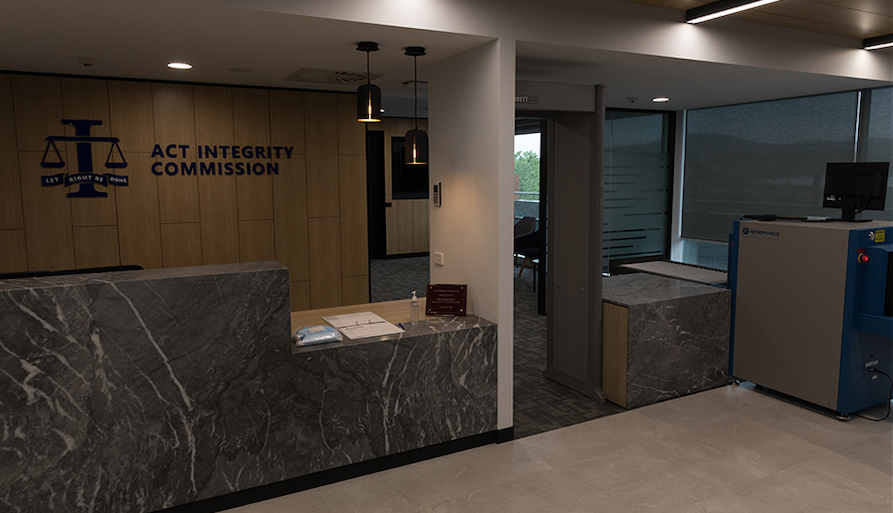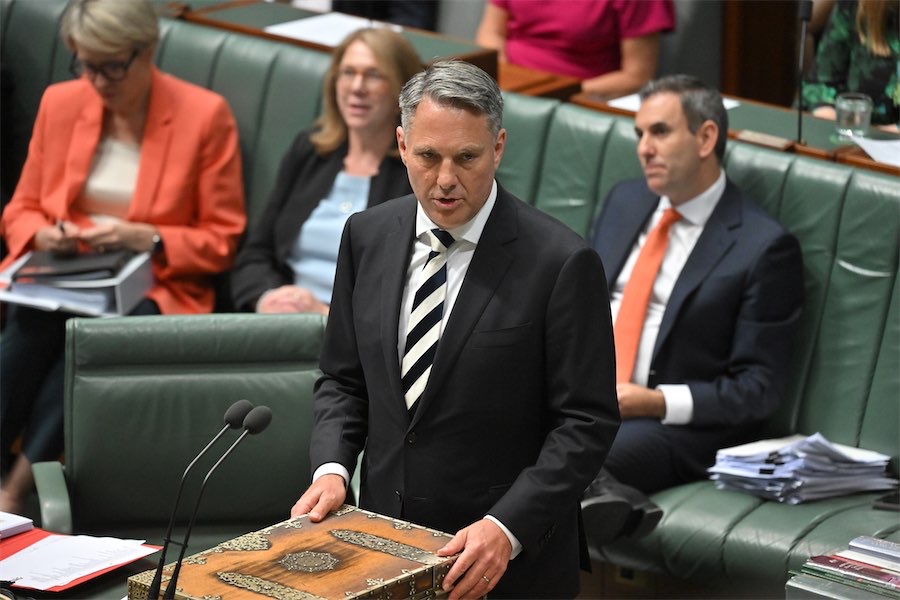
“There remain questions with regard to the $18 million Campbell Primary Modernisation Project. Was it corruption? Was it incompetence? Whichever way it went, it will cost taxpayers an additional $1.5 million,” writes political columnist MICHAEL MOORE.
WHICH is worse – corruption or incompetence? Either way, when it comes to government dealings, it is the ordinary people who miss out.

Recent ACT Auditor-General reports have identified areas of significant incompetence. It is now up to ACT integrity commissioner Michael Adams to determine if there is also corruption involved.
In round one, the ACT Integrity Commission brought down its first report finding no evidence of corruption in the handling of the land that was sold adjacent to Glebe Park.
“Operation Lyrebird” followed a scathing Auditor-General report and an examination by the ACT Legislative Assembly’s Standing Committee on Public Accounts.
The integrity commissioner’s special report explains that a report of corruption should be dismissed if the commission is “satisfied on reasonable grounds that the corruption report does not justify investigation”.
In regard to the Glebe Park land, the commissioner stated: “Close examination of all the available material has failed to raise the requisite suspicion and, accordingly, further dealing with the corruption report constituted by the (Public Accounts) Committee’s Report, cannot be justified”.
There is yet another issue now at the forefront of the commissioner’s mind. The procurement process for the $18 million Campbell Primary Modernisation Project simply “lacked probity” according to auditor-general Michael Harris.
The report that was tabled in the Assembly in the dying days of last year found that “tenderers were not dealt with fairly, impartially and consistently”.
It is not too much for taxpayers and tenderers in the ACT to expect probity and fairness in the way that tenders are managed.
Two tenders were submitted. The assessment team favoured a cheaper tender that met more of the criteria. It was submitted by Manteena for a sum of just over $17.3 million.
This assessment team was overruled, according to the audit report, by the acting executive group manager, Business Services Division in the Education Directorate. Instead, the decision was taken to award the tender to Lendlease at more than an additional $1.5 million, at nearly $18.8 million.
Unlike the Glebe Park land sales issue, where there was not “adequate suspicion”, the integrity commissioner has publicly called for building tenderers to come forward with any suspicion of corrupt conduct.
The call has been reiterated by Michael Hopkins, CEO of the Master Builders Association, by calling on “any business which has tendered for ACT government contracts to contact the Integrity Commission if they reasonably suspect corrupt conduct has occurred, or is occurring, in ACT government procurement or in relation to any aspect of the ACT public sector’s operations with which they have been involved”.
This widens the scope of what the integrity commissioner was seeking.
And where does the buck stop? Since the ACT moved away from Departments and moved to Directorates, the public servants’ prime reporting mechanism is the head of the Chief Minister’s Directorate. This enables the Chief Minister to keep a much tighter control on the public service.
Rather than being directly responsible, all ministers need to use their best efforts and persuasive powers to double check and ensure proper oversight of what is being done by their public servants.
So while there is some responsibility that lands on the Education Minister, in the case of Campbell Primary School Modernisation Project, the buck stops with the Chief Minister.
It is ironic then that the integrity commissioner should state in his report on the Glebe Park land: “After all, in the end, Ministers are responsible to the Assembly and the wider community for the performance of the tasks with which they have been entrusted”.
Michael Harris pointed out that “managers and supervisors had an ‘oversight’ and ‘quality assurance’ role, which involved reviewing draft tender evaluation reports completed by the tender evaluation teams.
“This allows for potential influence or interference to occur without explicit and specific clarity on their role and purpose”.
Who is in charge? Is it the bureaucrats or is it the ministers? Is it the Chief Minister?
There may be no “suspicion of corruption” regarding the Glebe Park land sales. However, there remain outstanding questions with regard to the Campbell Primary site. Was it corruption? Was it simply incompetence? Whichever way it went, it will cost taxpayers an additional $1.5 million.
Who can be trusted?
In a world of spin and confusion, there’s never been a more important time to support independent journalism in Canberra.
If you trust our work online and want to enforce the power of independent voices, I invite you to make a small contribution.
Every dollar of support is invested back into our journalism to help keep citynews.com.au strong and free.
Thank you,
Ian Meikle, editor





Leave a Reply